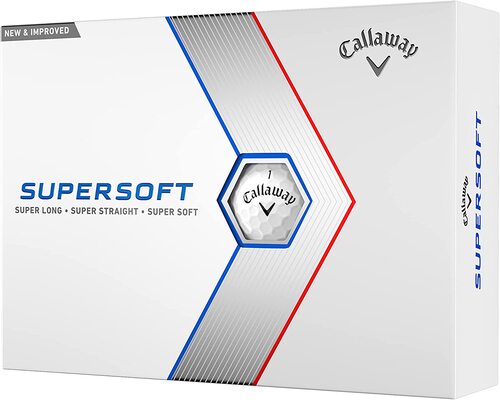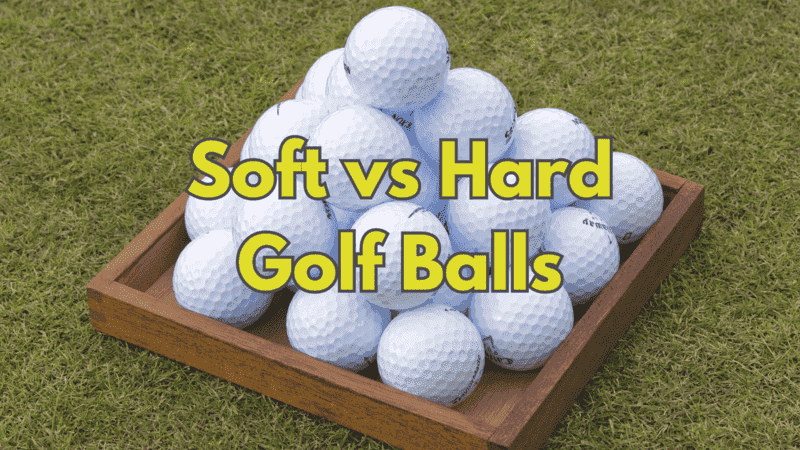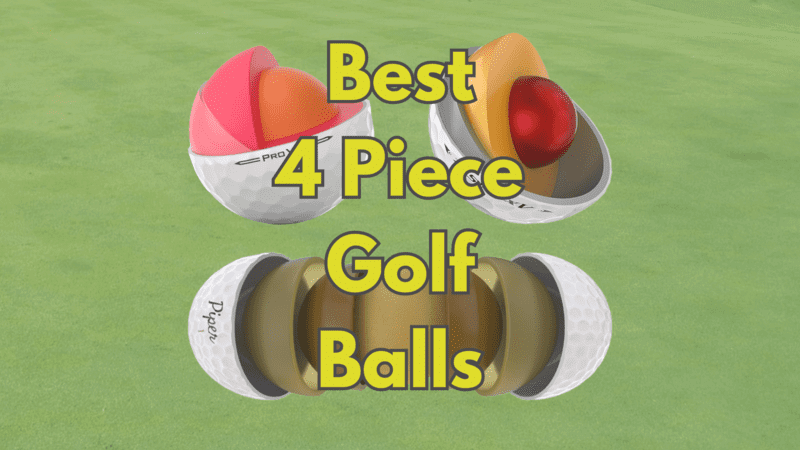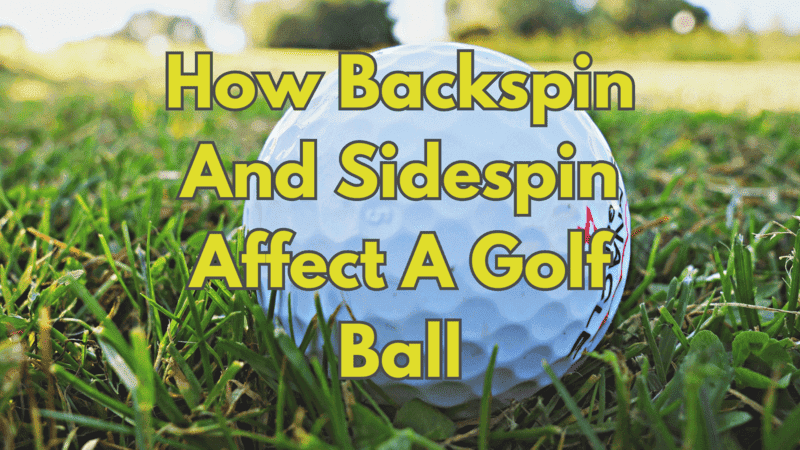Are you standing in the golf store, staring at a wall of golf balls and wondering which ones will make your game shine? It’s not just about the fancy patterns or high prices. Selecting the right type of golf balls – soft vs hard – can significantly impact how well you play on those grassy courses.
Believe it or not, that tiny dimpled sphere can be a game-changer! One cool fact: Golf ball compression ratings determine whether a ball is categorized as soft or hard – this rating affects how much the ball deforms (squishes) upon impact with your club.
In this article, we’ll dive into why that matters and guide you through choosing the perfect companion for your club. Ready to hit that sweet spot? Keep reading to find out how to up your game!
Key Takeaways
- Soft golf balls have low compression cores, providing greater deformation on impact and more spin and control, making them suitable for players looking to enhance their short game accuracy and finesse around the green.
- Hard golf balls, with high – compression cores, result in less deformation and higher ball speeds, offering greater distance and trajectory off the tee, which can benefit players with faster swing speeds.
- Understanding your skill level and swing speed is crucial when deciding between soft and hard golf balls, as this knowledge will help you identify which type of ball best complements your playing style and performance goals.
- Experimenting with different soft and hard golf balls through hands – on testing can reveal how each type interacts with your individual swing technique and style of play. This process enables you to pinpoint the specific characteristics that optimize your overall performance on the course.
Understanding the Difference between Soft and Hard Golf Balls
Soft golf balls are made with a low-compression core that allows for greater deformation on impact, while hard golf balls have a high-compression core that results in less deformation and higher ball speeds.
What makes a golf ball soft or hard?
The core and cover of a golf ball play key roles in determining its softness or hardness. A softer ball typically has a low compression core, which means it deforms more on impact but springs back quickly.
This gives you the feeling of the ball “sticking” to the clubface longer, which can enhance control for some shots. On the other hand, hard golf balls have high compression cores that don’t deform as much.
They provide less spin and can lead to increased distance, making them favored by players with higher swing speeds.
Materials used are also decisive factors in golf ball construction. Urethane covers are often found on softer balls intended for better players who desire spin rate control and feel around greens.
Surlyn® is usually used for harder balls offering durability and reduced spin, catering well to beginners or high handicappers looking for straighter flight paths off the tee. The technology behind each type ensures that regardless of whether you prefer a soft or hard feel, there’s a ball designed to optimize your game’s performance.
Differences in materials and construction
Golf balls come in various materials and construction, with soft balls typically having a lower compression core and a thinner golf ball cover compared to hard golf balls. The softer ball’s core compresses more on impact, providing a spring-like effect that can benefit players with slower swing speeds or looking for better feel around the greens.
On the other hand, hard golf balls have a firmer core and thicker cover, offering less spin but more distance off the tee. Understanding these differences in materials and construction is crucial when choosing the right ball for your game.
When comparing soft versus hard golf balls, it’s essential to consider how their material composition and construction can impact your overall performance on the course.
How Soft and Hard Golf Balls Affect Performance
Soft golf balls tend to offer more spin and control, making them ideal for players who want to manipulate their shots, while hard golf balls are known for providing greater distance and trajectory, catering to those looking for maximum performance off the tee.
Spin and control
Soft golf balls offer more spin and control, allowing you to manipulate shots with precision. Weekend golfers can use softer balls to improve their short game accuracy and finesse around the green.
When aiming for better control over your shots, consider opting for a soft ball to enhance your overall performance on the course.
Control is crucial when it comes to hitting specific targets or shaping your shots. By selecting a golf ball that provides ample spin and responsiveness off the clubface, average golfers can effectively fine-tune their approach and skillfully navigate different course challenges.
Distance and trajectory
Transitioning from spin and control to distance and trajectory, it’s important to note that the choice between soft and hard golf balls can significantly impact your shots. Soft golf balls tend to compress more upon impact, resulting in lower initial ball speed but better feel around the greens.
On the other hand, hard golf balls offer higher initial ball speed due to less compression, leading to longer distance off the tee with a flatter trajectory.
When choosing between soft and hard golf balls based on their characteristics related to distance and trajectory, weekend golfers should consider how different options will suit their game style.
Feel and touch
Transitioning from how the distance and trajectory of a golf ball can be influenced by its softness or hardness, let’s delve into how these characteristics affect the feel and touch of the ball during play.
When it comes to feel and touch, the softness or hardness of a golf ball plays a significant role in providing feedback to the golfer upon impact. Soft balls typically offer a more cushioned sensation at impact, providing a satisfying feeling of control and precision that many golfers appreciate.
On the other hand, hard balls may deliver a firmer sensation when struck, which some players prefer for its perceived responsiveness and direct feedback.
Choosing the Right Ball for Your Game
Consider factors such as your skill level and swing speed when deciding between soft and hard golf balls. Experiment with different balls to find the one that suits your game best.
Factors to consider (skill level, swing speed)
When choosing the right golf ball for your game, it’s essential to factor in your skill level and swing speed. Your skill level will determine the type of ball that complements your playing style and performance goals.
Beginners may benefit from softer balls that offer more forgiveness on off-center hits, while advanced players with higher swing speeds might prefer harder balls for better control and distance.
Understanding your swing speed is equally important as it influences how the ball responds to impact. Slower swing speeds are generally better suited to softer balls as they help generate more spin and lift, maximizing distance and trajectory.
Testing and experimenting with different balls
When considering the factors that align with your skill level and swing speed, testing and experimenting with different golf balls can reveal which one best suits your performance needs.
By taking time to hit shots with various soft and hard balls, you’ll find out how they perform in terms of spin, distance, feel, and trajectory. This hands-on approach allows you to assess firsthand how each ball type interacts with your swing technique and style of play.
Through this process, you can gain personal insight into which ball complements your game the most.
Recommendations

These are excellent high quality golf balls from an exceptional manufacturer. They have an incredibly soft and butter feel, making them our top pick for soft golf balls.

We have all heard that Titleist are the #1 ball in golf. They have a strong, firm feel. They also fly like a rocket! Making them our top pick for soft golf balls.
FAQs
1. What’s the difference between soft vs hard golf balls?
Soft golf balls have a softer feel and can help with better control, while hard golf balls are firmer and often give you more distance on your shots.
2. Which type of golf ball should a beginner choose?
Beginner golfers might prefer soft golf balls because they provide better feedback and control, which can be helpful when learning.
3. Can the choice of golf ball affect my game performance?
Yes, your choice in golf ball types can influence many aspects of your game such as trajectory, distance, and how the ball behaves on the green.
4. Where can I learn more about what other players think about different kinds of golf balls?
You could join a Reddit discussion or read online reviews to see what average golfer preference is regarding various golf equipment including soft vs hard golf balls.
Conclusion: Soft vs Hard Golf Balls
Selecting the right golf ball depends on your skill level and swing speed. Consider factors like spin, control, distance, and trajectory to enhance your game. Experiment with different ball types to find the perfect fit for your playing style.
Choose the ball that provides you with the best feel and touch during play for optimal performance.



